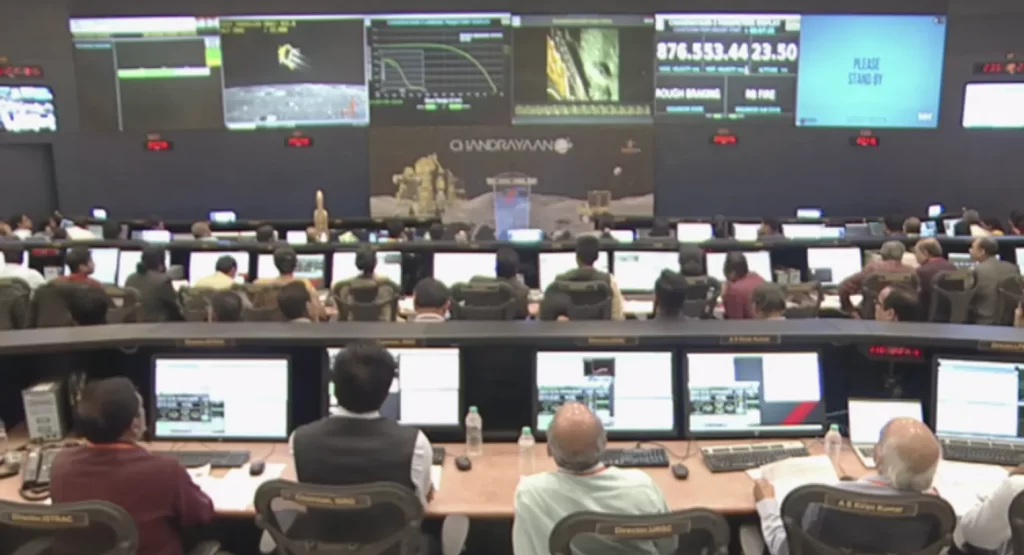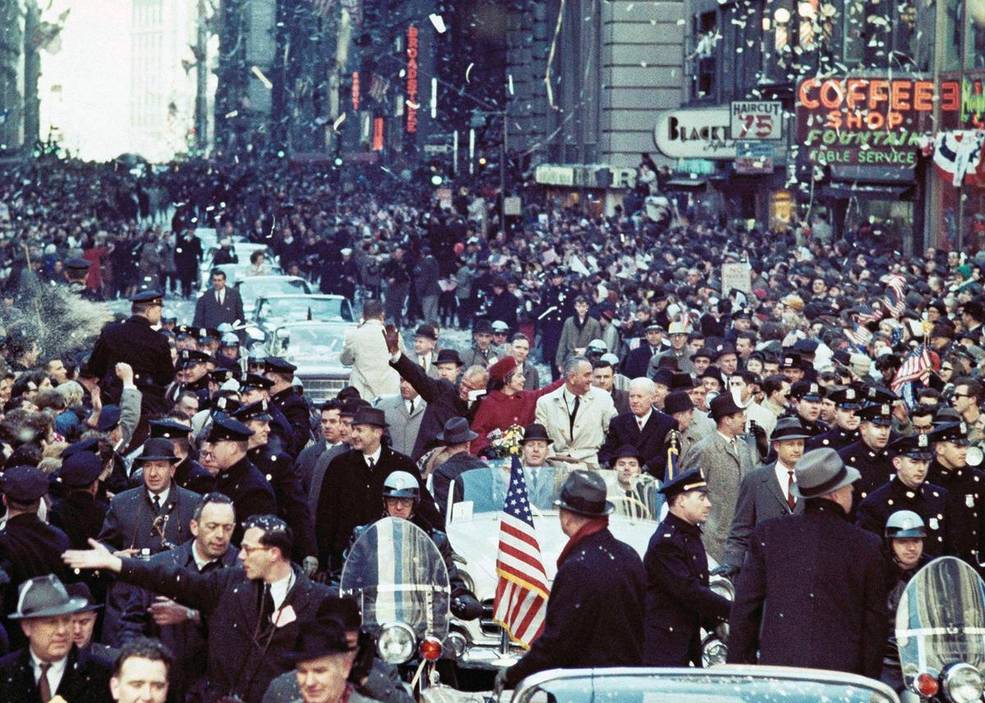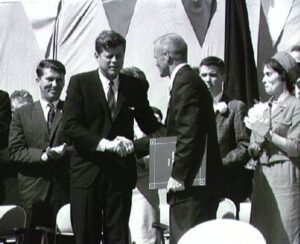India made history this week with the successful landing of the unmanned spacecraft Chandrayaan-3, on the moon’s south pole.

Today, I read in my routine smartphone news feed that India successfully landed a probe on the south pole of the moon. Chandrayaan-3 touched down at 8:30 a.m. EDT, August, 23, 2023. The mission, streamed live on YouTube, was India’s second attempt to land on the moon. U.S. news of the event seemed decidedly matter-of-fact.
What happened to our sense of wonder? When John Glenn returned from his historic Mercury Friendship 7 mission in 1962, President John F. Kennedy traveled to Florida to greet him. Glenn was the first American to orbit the Earth, just ten months after the Soviet cosmonaut Yuri Gagarin became the first human to orbit Earth in April 1961.
Glenn addressed a joint session of Congress in Washington. In New York, 4 million people turned out to watch his ticker tape parade on March 1, 1962.

Glenn was America’s national hero. He exemplified JFK’s New Frontier. He was invited to join 49 Nobel Prize laureates for the largest White House dinner during the Kennedy Administration on April 29, 1962. Partly at the urging of JKF’s brother, Attorney General Robert F. Kennedy, Glenn ran successfully for a U.S. Senate seat in 1974. He held the seat until 1999.

When I was a child, the news of another nation landing a probe on the moon would have dominated the news cycle for weeks or months, would have provoked emergency meetings at the highest levels of the American government, and even forced prolonged national hand-wringing about America’s status in the world.
If you think I’m exaggerating, read any account of America’s reaction to the Soviet launch of the world’s first satellite, Sputnik, in 1957. As journalist Thomas O’Toole wrote in 1982, “Except for Pearl Harbor, no single event in history assaulted America’s image of itself as did Sputnik. So rudely did the 184-pound sphere undermine the idea that the United States was the world’s leader in military, economic, and technological might that it changed the way Americans did research, supported universities, and taught their children.”
That was then. Today’s news is great for India, science, exploration, and ho-hum in the United States. No hand-wringing. No urgent need to compete with India’s achievement.
What Happened?
Well, first, the Cold War is over. At least that Cold War is over. Although India is the most populous nation in the world (now ahead of China), it is no existential threat to the United States or the West. Most Americans are perfectly indifferent to the fate of India, which — if they think about it at all — they associate with poverty, computer help lines, and Salmon Rushdie. If China had landed the probe, the conversation would be more intense. Russia’s most recent space venture, Luna-25, crashed on the moon on August 20, 2023, 47 years after its last successful moon mission. Nobody paid much attention in America. The failed mission confirmed our belief that Russia is a nation in decline.
Second, space travel is no longer tightly associated in America with our national destiny. NASA still exists and has ambitious plans to return to the moon, but the dynamism of space exploration is now in private hands. Elon Musk, Jeff Bezos, Paul Allen; SpaceX, Blue Origin, Virgin Galactic. … Most Americans (65%) say they want NASA to continue playing an important role in space activity and exploration, but they no longer associate space flight with America’s national identity. Even the most impressive private space ventures now attract only momentary attention. I doubt that teachers roll out televisions in the classroom to watch these launches and landings, as they routinely did during the 1960s.
The most important factor, I believe, is American disillusionment. John F. Kennedy’s inaugural address exemplified a heroic vision of America. “Pay any price, bear any burden, meet any hardship, support any friend, oppose any foe.”
On September 12, 1962, JFK said, “We choose to go to the moon in this decade and do the other things, not because they are easy, but because they are hard.” But there was more. “Because that goal will serve to organize and measure the best of our energies and skills, because that challenge is one that we are willing to accept, one we are unwilling to postpone, and one which we intend to win.”
Ask not. Who would respond to that call today?
Glenn said of his New Concord, Ohio upbringing, “Love of country was a given. Defense of its ideals was an obligation. The opportunity to join in its quests and explorations was a challenge not only to fulfill a sacred duty, but to join a joyous adventure.”
That Was Then.
Since 1960, the American people have lost much of their respect for all the key institutions: the presidency, Congress, the courts, public education, universities, the press, even the role of the church in American life.
John Glenn was a fabulous national hero in 1962. We live on the other side of the assassinations, Vietnam, Watergate, the revelations about America’s covert interference in other countries’ destinies, Bill Clinton’s libido, police shootings, the Teflon immunity of Wall Street, the Iraq wars, and — most recently — the Trump years.
It’s hard to know what would light the American people up now. We’ve become not just disillusioned but jaded. Our characteristic historical idealism seems squeezed out of the national psyche. Even the euphoria over our first African American president’s election was short-lived.
India’s moon mission is a great triumph. India’s Prime Minister Narendra Modi got it right. “India’s successful moon mission is not just India’s alone. This success belongs to all of humanity. And it will help moon missions by other countries in the future.”
I write this on the morning of the first presidential primary debate of the 2024 election. Will any of the eight individuals on the stage in Milwaukee tonight congratulate India and call upon the American people to regain a sense of national identity and grandeur? I hope so.
Nothing good can follow when a people lose respect for its institutions and national narrative. We must find a way to claw out of this slough of cynicism, jadedness, and disillusionment. It’s hard to believe we can meet the challenges of the 21st century unless we find a way to restore the American spirit.
The fire will need to be lit by the people, not its current leaders. There is no JFK on the horizon. The spark is going to have to come from the bottom up.
